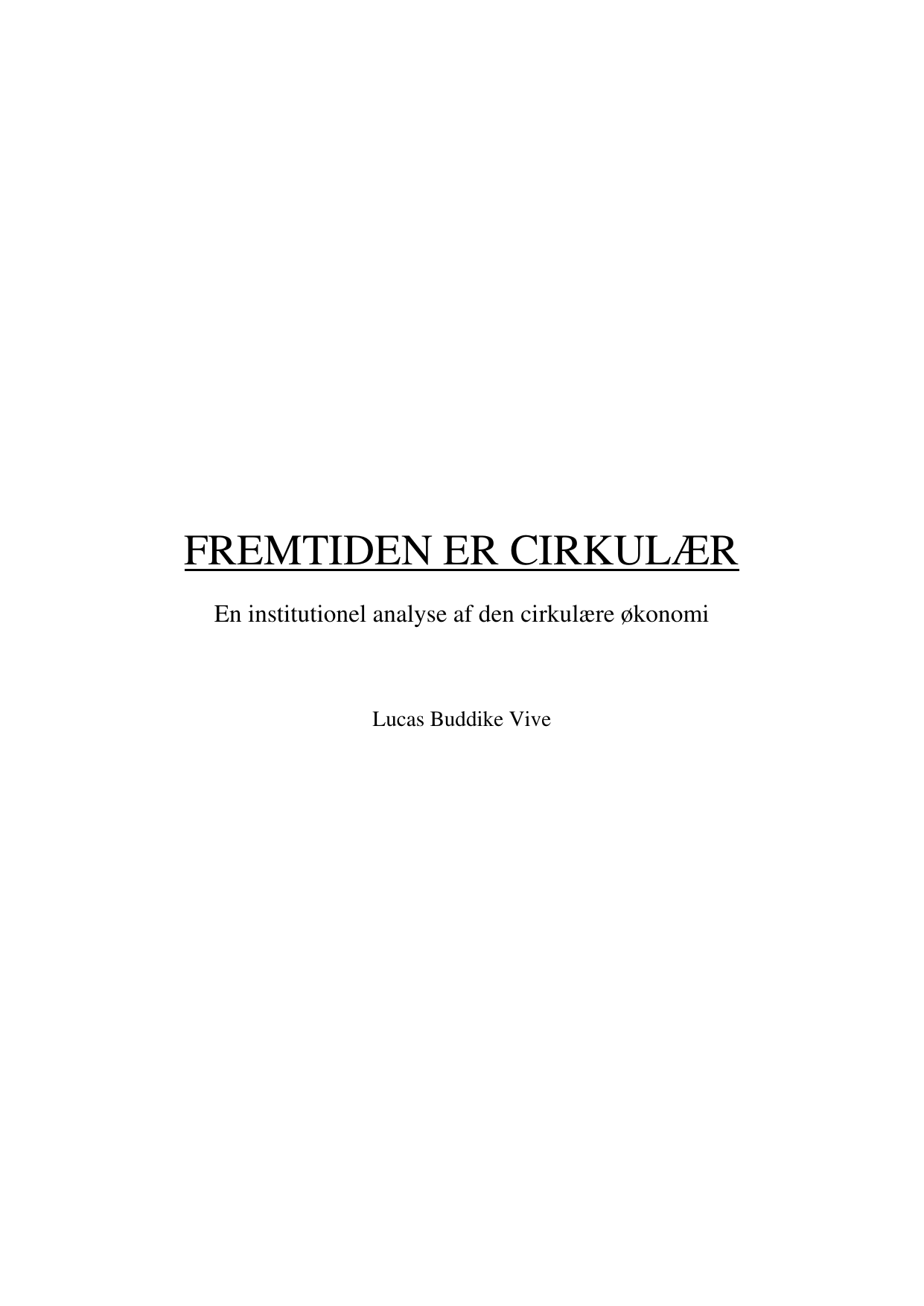
Fremtiden er cirkulær: En institutionel analyse af den cirkulære økonomi
Oversat titel
The Future is Circular: An Institutional Analysis of the Circular Economy
Forfatter
Semester
4. semester
Udgivelsesår
2023
Afleveret
2023-01-12
Antal sider
56
Abstract
Dette studie er en kvalitativ analyse af den cirkulære økonomi i byggebranchen. studiet adressere følgende problemformulering "Hvordan kan en cirkulær økonomi opstå og vedligeholdes, gennem den nuværende konventionelle byggebranche? Herunder forstærke markedspositionerne gennem nye legitime principper?" Det kvalitative studie er baseret på fem informanter. to fra det traditionelle felt, og 3 fra det cirkulære felt. Opgaven bygger på VCØB som case og hvordan de interagere gennem felt aktører. den analytiske fremgangsmåde er baseret på Ny Institutionel Teori og indeholder en begrebsramme som følgende: Logikker, institutionel kompleksitet, felter, subfelter, infrastrukturer. Studiets fund er at den cirkulære økonomi bliver påvirket af menneskelige interaktioner og hvordan disse forbedrer samarbejdet.
This study is a qualitative analysis of the circular economy in the building industry. The study addresses the following problem statement: How can the circular economy rise and maintain throughout the traditional building industry, and improve the market position with legitimate principles? The methodological approach is a qualitative case study based on a total of 5 informants, two from the traditional field, and three from the circular field. The foundation of the case is based upon VCØB and how they interact with other field actors. The analytical approach of the study is based upon New Institutional Theory including institutional logics, institutional complexity, field, subfields and infrastructures. Initially the construction industry is being characterized through its development within the circular economy. The study´s key findings are how the circular economy can be adapted within an existing field, where new understanding of the human behavior plays a crucial part to create and withhold the circular principles. Furthermore, this study suggest that the circular economy can only improve with the commitment from all field’s actors.
Emneord
